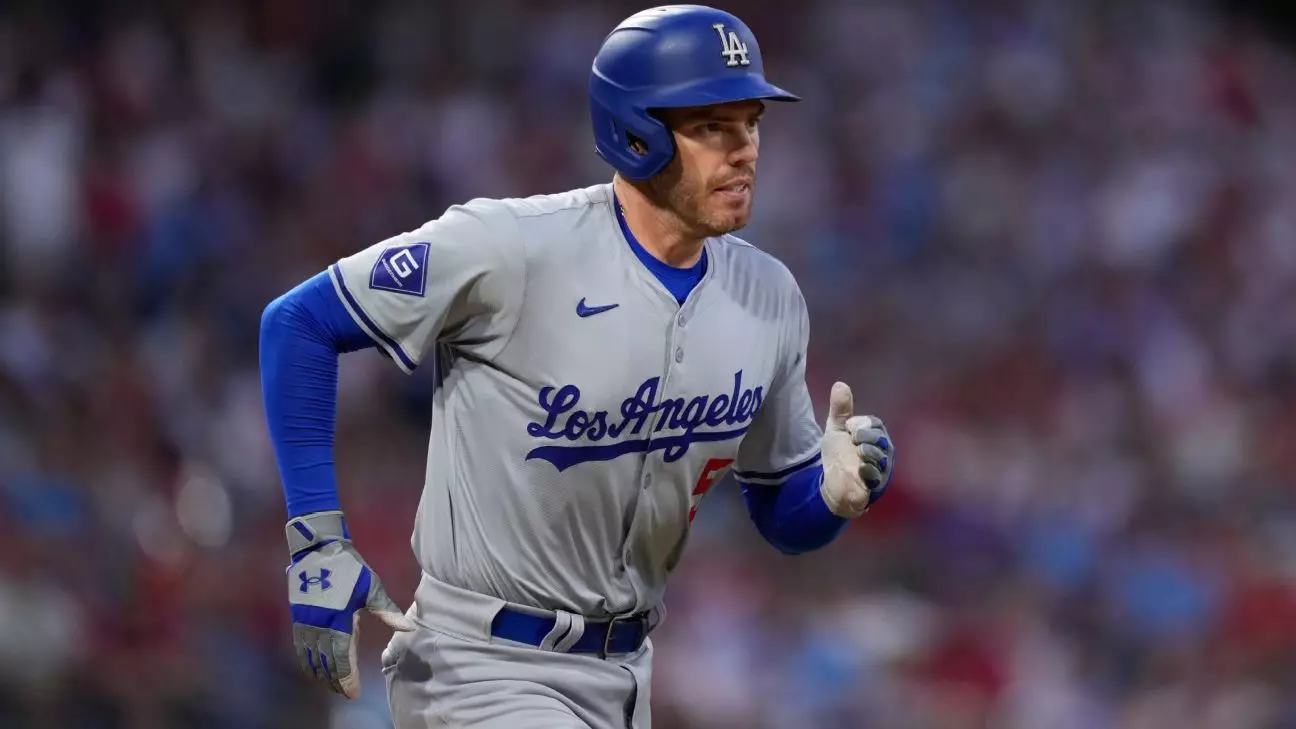Freddie Freeman, the Los Angeles Dodgers’ star first baseman, is currently navigating the torment of a lingering ankle injury, which has led to his exclusion from the starting lineup for Game 4 of the National League Championship Series. This situation paints a stark picture of the toll injuries can take on a professional athlete’s performance, particularly when it comes to high-stakes postseason games. After suffering a severe ankle sprain on September 26 against the San Diego Padres, Freeman has bravely continued to participate in this year’s playoff run. However, his offensive contributions have notably diminished, with all seven of his postseason hits being singles out of 27 at-bats.
The sprain has impeded Freeman’s ability to execute his typically powerful swing, resulting in considerable frustration both for him and the team. Injuries are an unfortunate reality in sports, often forcing players to adapt their game or risk further injury, and this contrast is particularly evident in Freeman’s case. While he has demonstrated resilience by attempting to play through pain, it raises questions about the impacts of such injuries on durability in the long run.
Strategic Adjustments by the Dodgers
In light of Freeman’s condition, the Dodgers’ management has made crucial lineup changes, opting for a predominantly right-handed approach against the New York Mets’ left-handed starting pitcher, Jose Quintana. These adjustments illustrate the strategic flexibility required in competitive sports, particularly during the postseason where each game could dictate the team’s trajectory in the series. Teoscar Hernandez, generally not in the spotlight, will step into the significant No. 3 batting slot traditionally held by Freeman, highlighting the depth and adaptability of the Dodgers’ roster.
Kiké Hernández’s shift from center field to third base further exemplifies the team’s commitment to maintaining a competitive edge despite setbacks. Additionally, Max Muncy’s transition to first base signifies a robust team dynamic; it showcases how various players can step up to fill gaps when star players like Freeman are hindered. This adaptability is crucial in professional baseball, where injuries can sometimes sideline pivotal players during critical moments.
Emotional and Team Dynamics
Freeman’s contribution extends beyond statistics; his presence in the locker room and on the field serves as an emotional rallying point for the team. Dodgers’ catcher Will Smith has emphasized the impact Freeman has on his teammates, noting how his willingness to endure pain inspires those around him. This highlights an essential aspect of team sports: the psychological influence players have on each other. Freeman’s grit and determination to play despite significant discomfort resonate throughout the clubhouse, serving not only as motivation but also as a testament to his character and commitment to the game. The bonds formed through shared struggles are often what sustain a team through adversity.
Freddie Freeman’s current challenges encapsulate the broader themes of resilience and adaptability that define professional sports. While injuries may sideline even the best players, the strategies employed by teams in overcoming such obstacles can forge stronger group dynamics and lead to unexpected victories. As Freeman continues his recovery, the Dodgers remain hopeful that his return will not only bolster their lineup but also reinforce the team’s collective spirit as they aim for the ultimate prize—a World Series championship.


Leave a Reply